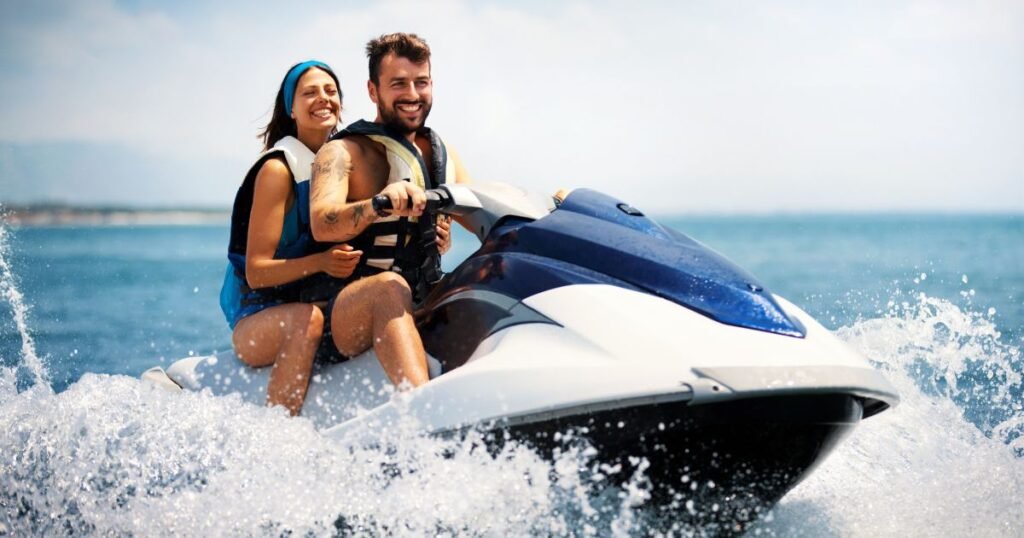Water sports offer exhilarating ways to connect with nature, but they can also impact marine environments. Fortunately, many water sports can be practiced sustainably, minimizing harm and maximizing enjoyment. Sustainable water sports involve being mindful of the environment and choosing activities that rely on renewable energy, produce minimal pollution, and respect marine life.
Why Choose Sustainable Water Sports?
- Environmental Preservation: Sustainable practices help protect fragile marine ecosystems from pollution, habitat destruction, and disturbance.
- Reduced Carbon Footprint: Many eco-friendly water sports rely on natural power sources like wind and human energy, reducing dependence on fossil fuels.
- Respect for Marine Life: Sustainable activities minimize noise and physical impact on marine animals and their habitats.
- Enhanced Appreciation for Nature: Engaging in sustainable water sports fosters a deeper connection with the ocean and encourages environmental stewardship.
Eco-Friendly Water Sports Options

Sailing
Harness the wind’s power for a serene and emission-free experience. Sailing utilizes a renewable energy source and produces minimal noise pollution. Ensure responsible practices by respecting marine protected areas, avoiding litter, and using eco-friendly materials.
Windsurfing and Wingfoiling
Similar to sailing, windsurfing and wingfoiling rely on wind power, offering a thrilling and sustainable way to glide across the water. These sports produce no fuel consumption, reducing air and water pollution, and have a limited mechanical impact on the marine environment.
Kayaking and Paddleboarding
These human-powered activities provide excellent exercise while allowing you to explore coastlines, rivers, and lakes up close. They have a low environmental impact, promote physical fitness, and offer opportunities for wildlife observation.
Swimming, Snorkeling, and Diving
Immerse yourself in the underwater world with minimal impact. Choose eco-conscious tour operators, avoid touching or disturbing marine life, and be mindful of your fin movements to protect delicate ecosystems.
Canoeing and Pedal Boating
Enjoy leisurely exploration on calm waters with these human-powered options. Canoeing and pedal boating are quiet, non-polluting, and suitable for various ages and fitness levels.
Surfing (with Care)
While traditional surfing relies on wave energy, it’s essential to be mindful of your impact on coastal environments. Choose surfboards made from sustainable materials, avoid surfing in sensitive areas, and participate in beach cleanups to minimize your footprint.
Innovations in Sustainable Water Sports

- Environmentally Friendly Designs: Designers and manufacturers are incorporating sustainable production processes and eco-friendly materials into their products.
- Smart Technology: Integrating technology like GPS and radar-operated systems helps avoid harvesting endangered species.
- Electric and Hybrid Systems: Solar-powered electric boats minimize carbon emissions and the need for fossil fuels.
- Low Carbon Materials: Using greener bio-based resins and recycled plastic composites minimizes the industry’s environmental impact and promotes cleaner water sports.
Tips for Practicing Sustainable Water Sports

- Choose human-powered or wind-powered activities: Opt for sailing, kayaking, paddleboarding, or swimming to minimize your carbon footprint.
- Use eco-friendly equipment: Select gear made from recycled or sustainable materials, such as bamboo surfboards or wetsuits made from natural rubber.
- Respect marine life: Avoid disturbing or feeding marine animals, and be mindful of their habitats.
- Minimize waste: Pack out all trash, and avoid single-use plastics. Use reusable water bottles and containers.
- Support sustainable businesses: Choose tour operators and equipment providers committed to environmental responsibility.
- Participate in conservation efforts: Join beach cleanups, support marine conservation organizations, and educate others about sustainable practices.
Also Read : Why Wake Foiling Is The Next Big Thing In Water Sports
Conclusion
Sustainable water sports offer a way to enjoy the ocean while protecting its delicate ecosystems. By choosing eco-friendly activities, using sustainable gear, and adopting responsible practices, you can minimize your environmental impact and help preserve the marine environment for future generations. Embrace the power of sustainable water sports and make a positive impact on the ocean we love.
FAQs
What makes a water sport sustainable?
Sustainable water sports utilize renewable energy sources, minimize pollution, respect marine life, and promote environmental awareness.
Are motorized water sports always unsustainable?
While many motorized water sports have a higher environmental impact, innovations like electric and hybrid systems are making them more sustainable.
How can I choose eco-friendly water sports equipment?
Look for gear made from recycled or sustainable materials, such as bamboo, recycled plastic, or natural rubber.
What can I do to minimize my impact while participating in water sports?
Avoid littering, respect marine life, use eco-friendly products, and support sustainable businesses.
How can I get involved in promoting sustainable water sports?
Participate in beach cleanups, support marine conservation organizations, and educate others about sustainable practices.
